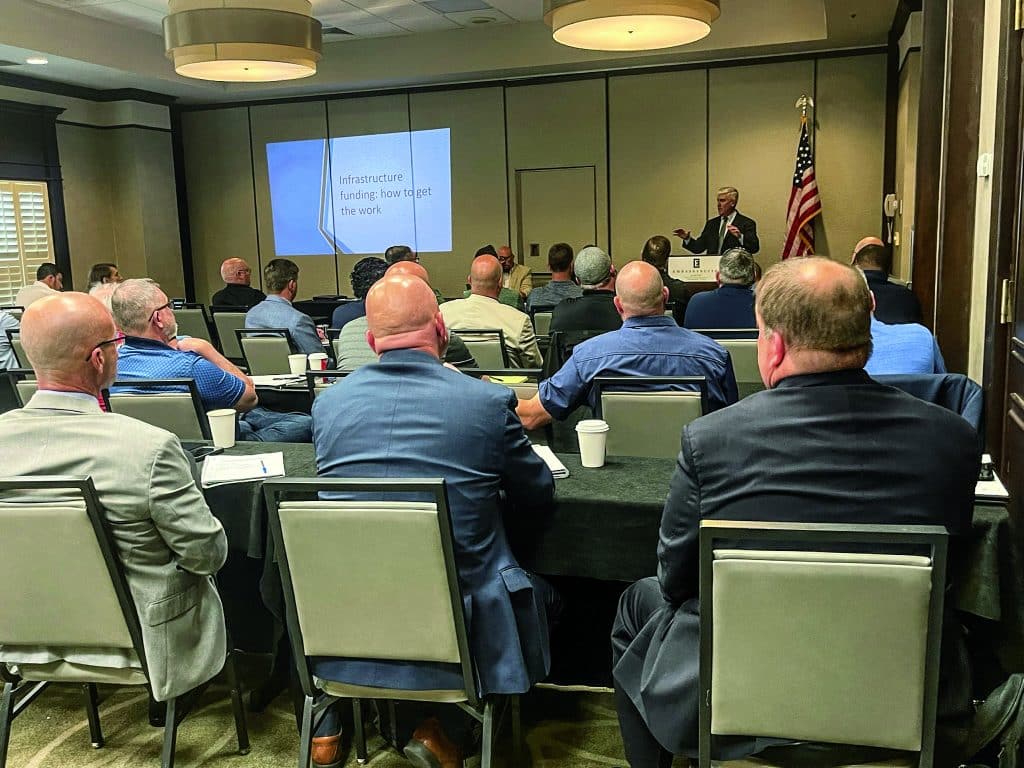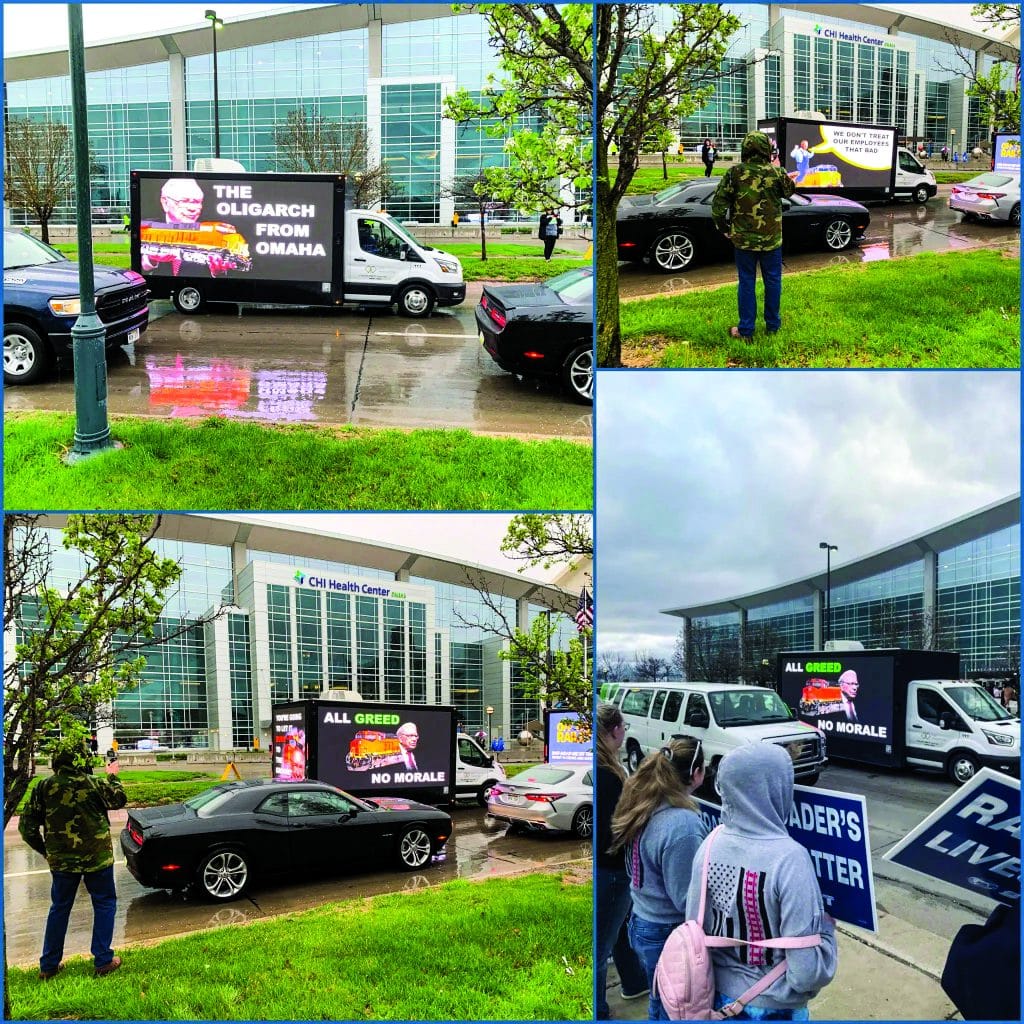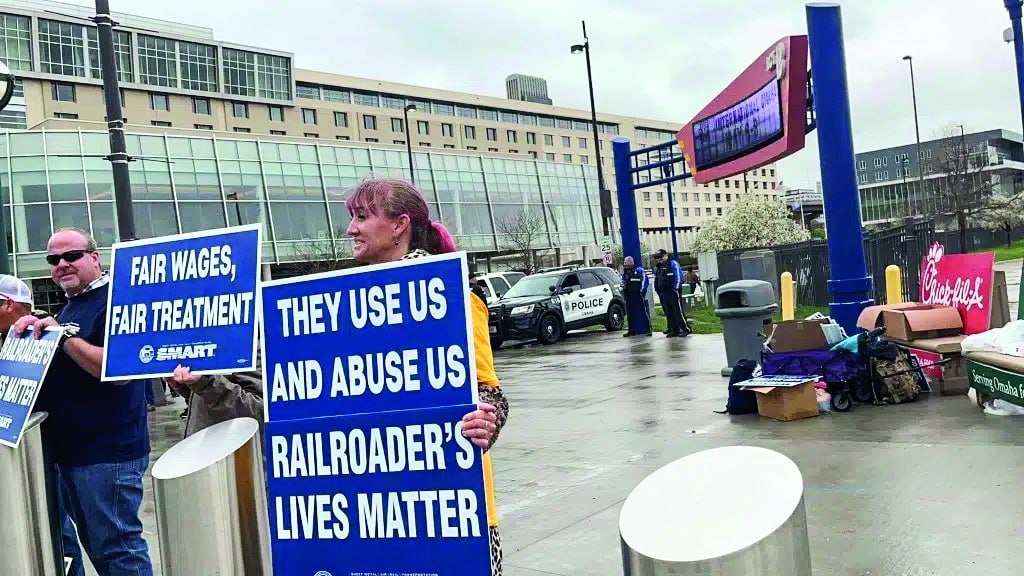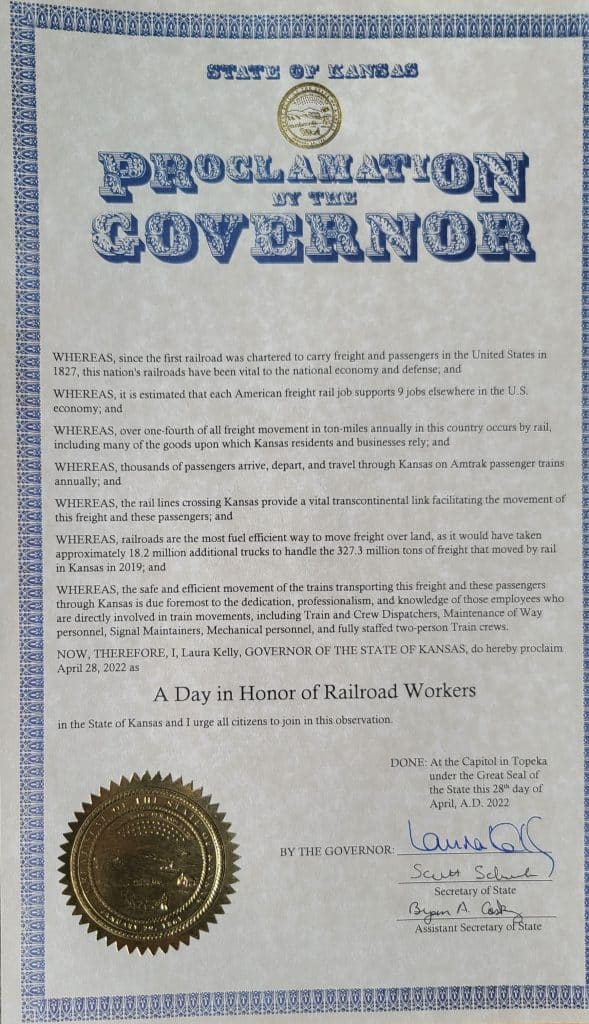On April 4, 2022, members from across SMART gathered in Washington, D.C. to hear from SM Local 40 (Hartford, Conn.) Regional Manager John Nimmons about important indoor air quality (IAQ) legislation for sheet metal workers in Connecticut — based on an earlier legislative effort championed by SM Local 25 (Northern N.J.) Business Manager Joe Demark — that demonstrates how vital it is for SMART members to advocate in their local governments.
As of late spring 2022, multiple Connecticut State Senate bills, the most prominent being the Act Improving Indoor Air Quality in Public Schools (SB 423), are making their way through the legislative process with the backing of a labor coalition comprising SMART, the Connecticut Education Association (CEA), the American Federation of Teachers (AFT), the United Auto Workers (UAW) and more. Despite a deeply divided political climate, SB 423 garnered overwhelming bipartisan support, with Connecticut Gov. Ned Lamont allocating $90 million in his proposed budget to IAQ. Importantly, Nimmons noted, “We got the language in [the bills] that we wanted, that will bring the work to us.”
“When we are involved in the legislative process from the start, we can ensure that the most qualified technicians — SMART members — are the people making sure our schools and buildings are up to par in terms of IAQ.”
The legislative journey started in February 2021, when Jeremy Zeedyk from NEMI met with Nimmons to talk about IAQ bills they hoped to pass. After forming a task force containing SMART, SMACNA, the Testing, Adjusting and Balancing Bureau (TABB), the UAW, various education and health commissioners, the state department of labor and more, Nimmons and several task force partners created a subcommittee, the Coalition for Healthy Air in Schools, which included contractors, teachers, school nurses and others. In weekly meetings, aided by labor lobbyists in Hartford and the state building trades, the worker-powered subcommittee hammered out the details of a bill that would meet the needs of all parties. “These are all the little coalitions that we had going along, and we used each one of them to pull [the bill together],” Nimmons said. “We didn’t get here overnight.”
In some ways, this legislation was years in the making: SMART members supported the candidacy of the retired teacher-turned-state senator who is now championing the bill. Additionally, it took working with a variety of parties — from the state commissioner of labor to the local vocational teachers union — to make sure every detail of the bill met high labor standards: using Connecticut OSHA requirements, providing adequate IAQ reporting procedures and whistleblower protections, and expanding the standards of existing schools to also apply to new construction.
The impact the bills will have on SMART members is tremendous: They will be the workers called upon to retrofit and construct facilities to meet improved IAQ standards. “This will dramatically change the work hours for my local,” Nimmons explained.

The Connecticut IAQ bills are closely modeled on legislation currently in the pipeline in New Jersey — which, similarly to Connecticut, could never have found forward progress without the efforts of SMART, particularly Local 25 Business Manager Joe Demark and NEMI Director of Training Chris Ruch. Currently, Demark is working to push the bill through the New Jersey Assembly, following prior collaboration with former N.J. Senate President Steve Sweeney. And while the bill has yet to become law, Demark, Ruch and John Hamilton, chief operating officer of TABB, are striving to make sure the legislation includes strong language that will benefit SMART members. As Demark noted, lawmakers — even those with a blue-collar background — don’t always have the knowledge or experience to guarantee that HVAC and IAQ work goes to technicians with the right levels of expertise. It’s crucial that SMART sheet metal workers make their presence felt throughout the legislative process for the benefit of local unions – and the local communities whose lives will be impacted.
“Government officials and communities across North America are beginning to realize how important indoor air quality is for keeping our kids, families, friends and neighbors safe and healthy,” SMART General President Joseph Sellers explained. “When we are involved in the legislative process from the start, we can ensure that the most qualified technicians — SMART members — are the people making sure our schools and buildings are up to par in terms of IAQ.”
“This is going to mean a lot of work hours for our people,” Demark added.
SMART has been instrumental in working to pass IAQ legislation across the country. In Nevada, Assembly Bill 257 requires all public and charter schools in the state to assess and upgrade (if needed) their HVAC and filtration systems once federal money already allocated for this purpose becomes available at the state level. “With fire and life safety, and now with indoor air quality, members will have more opportunities to branch out into other aspects of being a sheet metal worker to increase hours and market share,” SMART Local 88’s (Las Vegas) business manager at the time, Jeff Proffitt, said in June 2021, when the bill passed. In California, meanwhile, AB 841 — signed into law in 2020 — will direct more than $600 million in energy efficiency funding to test, adjust and repair HVAC systems in public schools. The best part for SMART members: The legislation requires the work be performed by a TABB-certified technician to receive funding.
Whether in New Jersey, Connecticut, California, Nevada or beyond, IAQ legislation is emerging as a potentially bipartisan issue with robust benefits for local communities — and stellar work opportunities for SMART members. To begin lobbying for IAQ bills in your state, contact your local union leadership or director of government affairs.


